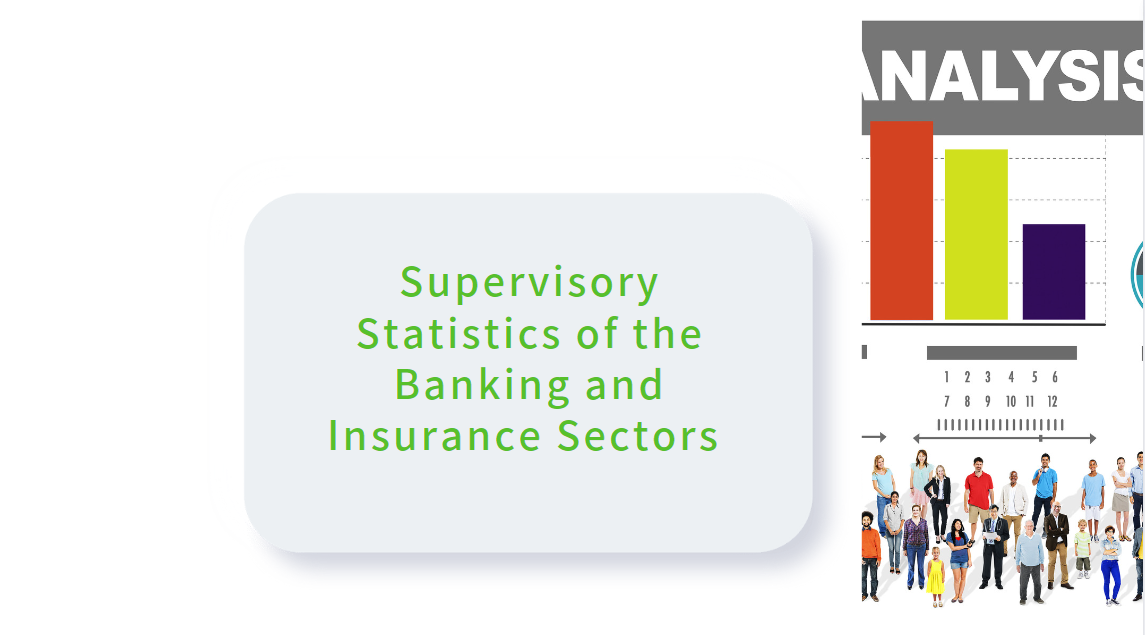Derek Grantham speaking at the Mortgage Link & Insurance Link Conference
Derek Grantham speaking at the 2020 Mortgage Link & Insurance Link Conference – 11 November 2020
(Notes may differ slightly from speech as delivered)
Good afternoon and thank you for having me here today.
Over the last couple of years, I’ve toured up and down the country to help advisers understand what’s required of them in the new financial advice regime – giving speeches to large crowds, being on panels, answering questions. And, occasionally, getting a few metaphorical tomatoes thrown at me by advisers who weren’t exactly thrilled about the change in regulation.
It’s taken me a bit of time, but as I got more familiar with the subject matter and developed a thicker skin, I built up my confidence.
Confidence. That’s what I want to discuss today. Today I want to do something different. I want to shift the focus to the importance of “you” being confident … confident in what you do as a financial adviser in the new regime.
Today, I will discuss:
- Why confidence matters
- The importance and value of what you do.
- And lastly, being cautiously confident about your approach to meeting your new duties and obligations.
We’re now only 80 working days away from the new era.
We are tracking well, having processed 1,137 transitional licences / 450 authorised bodies.
However, our data suggests that there are still many advisers who have registered on the FSPR but haven’t yet taken the second step by applying to the FMA for a transitional licence.
We are actively encouraging everyone who wants to participate in the new regime to get a transitional licence before the summer break.
Otherwise, they will have to apply for a full licence and wait until we have granted it to continue business.
1: Why confidence matters
The FMA has spoken in the past about our role in promoting confident participation in the markets. You may have heard us speak about why confidence is important, what damages confidence, and what we expect from market participants.
FMA’s mandate
The FMA exists to promote fair, efficient and transparent financial markets.
In order for markets to have these features, investors must have confidence.
If people are not confident, they don’t participate.
MBIE policy
The aim of the new regime is to promote more confident and informed consumers and investors.
It’s about developing public confidence in the professionalism of advisers.
Consumers
Consumers value the expertise and time savings that obtaining financial advice provides.
They value advice where they feel they don’t have expertise.
An MBIE paper on consumer groups found that the qualities consumers want from a financial adviser include, someone who doesn’t use jargon alerts them to the fish hooks of different financial products
- provides a range of information (both solicited and unsolicited) provides an opinion or direction rather than just leaving it up to the customer to decide makes them feel valued, rather than just a number on a balance sheet.
One particular quote from the paper stood out to me:“The elements of the legislation that provide the most confidence for consumers are more closely related to their personal relationship with their adviser.”
- If you don’t have the confidence of consumers, then it going to be very difficult for you to grow your business and thrive.
- And, as you will hear in a moment, people like me are counting on you. Counting on you being there when they need you. Counting on you being available to give them the help and assistance they need.
2: The importance and value of what you do
There’s a lot of research that shows that New Zealanders who receive professional financial advice are, on average, better off.
I have a deeply personal reason for believing in the importance of what you do. I have two teenage sons and I’m keen for them to get out into the world. And that they leave home … soon.
Yet, a concern I share with many parents is wondering how the kids will get onto the property ladder.
I may be preaching to the choir, but a recent report from ANZ noted that housing affordability has worsened significantly in recent decades.
It now costs more to purchase a house and longer to save for a deposit putting homeownership further out of reach for many.
For those looking to get onto the property ladder, saving and renting concurrently, on average eats up 37% of incomes in NZ as a whole and as much as 43% in Auckland.
My boys going to be living at home a lot longer than I imagined.
Clearly, they will need to receive quality financial advice. Frankly, so will the bank of mum and dad.
Advice in an era of low interest rates
Quality financial advice is becoming even more essential in a world of low interest rates.
The current environment is fantastic for those who have already saved for a house, as they can get a mortgage at a cheap rate.
These households will need to be mindful of increasing interest rates in the future, as a mortgage that is “affordable” at 2/3% may be unaffordable at 4/5/6%.
However it’s harder for younger generations who have not yet saved. And telling them to save more isn’t the entire solution.
Renting is becoming increasingly expensive - increasing at a faster rate than wage growth. As is the case with my boys, younger generations may need to normalise living with parents for a time. Or rather, parents may have to normalise their kids staying at home longer.
Even when they do leave home, these younger generations may need to accept a different quality of life than the typical Kiwi dream home. No longer is it a white weatherboard house with a lawn, but a small city apartment as they start to raise a family of their own.
We’ve also seen a whole new wave of young people enter the investment market with the rapid proliferation of investment apps like Sharesies, Hatch and InvestNow. COVID-19 accelerated this trend with people tucked away in their homes, some wondering how they should be using their money.
The FMA has previously said this new wave of investors needs to understand the risks and ensure they are only using money they can afford to lose.
We need to make sure they don’t seek out extremely high-risk products in an attempt to get better returns.
Some are literally betting the house to afford a house. There was an article earlier in the year about a couple that gambled on the share market to pull together a deposit for their first home.
Given all this, there’s a huge potential for advice around expectations.
So as a current and future consumer of financial advice, I can “confidently” say that we will need your help.
But first, before you help us, we need you to ensure you are in shape to fulfil the new duties under the new regime.
These duties aim to ensure all New Zealanders have access to quality financial advice, and help to build public confidence in advisers – a good thing for everyone.
3: Cautiously confident about your new duties and obligations
You need good reasons to feel confident about your new duties and obligations, which come into effect on 15 March 2021. Without those good reasons, you are at risk of being overconfident.
Overconfidence is a major reason why people fail and it leads to complacency.
This complacency was a prominent theme in the FMA’s September 2020 insights report.
We found casual or careless approaches to compliance, which, left unchecked, can escalate into poor outcomes for customers. These may be in ways that are not immediately obvious.
It’s time to get in shape and instead be cautiously confident about your approach to compliance.
Before we look at the issues in the Insights Report, let’s go back a couple of years to look at an earlier report.
This was a report on our review on replacement business and conflicted conduct in March 2018.
The key findings from this report were:
- Half of the advisers reviewed were either not aware of the obligation under the Financial Advice Act to exercise care, diligence and skill, or they were in breach of their obligation.
- Most of the advisers reviewed and interviewed failed to recognise that incentives create a conflict with the interests of their clients.
In the new regime there is a duty to exercise care, diligence, and skill. There is also a duty to give priority to the client’s interests.
We also need to remember the consumer expectations of advisers, which I referred to earlier.
Back in September 2020, the Insights report highlighted several issues in the AFA and QFE sectors.
We found several instances of non-compliance in relation to key obligations and customer outcomes:
- Some advisers did not use any structured process to identify and match their client’s needs to specific recommendations
- Incomplete or insufficient records of discussions with clients, including agreements reached in those discussions
- Failing to document what information, disclosure documents and financial advice were provided to the client
- Failing to show that the scope of service had been communicated to the client
- Not documenting the rationale for personalised advice provided to a client
Unfortunately the list doesn’t stop there – we found issues with disclosure as well:
- Disclosing information regarding fees in a way that could be misleading
- Failing to make customers aware of the scope of the service they provide, including when they offered a limited service
- Defective disclosure documents that failed to include required information or contained out-of-date information
The FMA has been saying for the past couple of years that good conduct is something that needs to be at the heart of your business. Don’t think it’s something that you only have to show when we are visiting.
We also aren’t there to hand-hold entities or advisers through their compliance obligations. The FMA has provided significant guidance to these sectors through publication and industry engagement.
Despite our conduct and culture reports into banks and insurers - and the increased public scrutiny on financial services as a whole - focusing on the needs of customers still feels like an afterthought. Something that is tacked on rather than at the heart of governance and culture.
The regulatory regime is now mature to the point where there are no excuses for potentially harmful conduct to consumers and confidence in markets.
What you can do
So how do you ensure that you meet the FMA’s, and more importantly, consumers’, expectations?
The remedy is to take the new duties and obligations seriously.
We want to see that financial service providers demonstrate an appropriate customer centric culture. Make improvements and investments in governance, incentive structures, sales and advice processes, and systems to mitigate risk.
Thinking about the new regime, the Insights Reports provides a couple of important comments.
Let’s boil that down to two common themes that we’ve seen the advice sector struggle with: disclosure and record keeping.
Disclosure
The new financial advice regime will introduce new disclosure requirements.
Essentially, we want consumers to have information that will help them determine where to find the advice they need and key information about the advice that they are getting.
The new financial advice regime will cover a wide range of ways of providing advice. As such, a one-size-fits-all financial advice disclosure statement isn’t the most effective way of informing consumers.
In future, there is the flexibility for businesses to tailor how they give disclosure.
It’s important that you take the time to ensure you are ready to deliver relevant and timely disclosure information to customers. Your processes must also support this outcome.
Record keeping
Record keeping is a licensing obligation in the new regime.
You must create in a timely manner, and maintain, adequate records in relation to your financial advice service.
Where the record keeping obligations are not met, not only will that cause us to consider what other non-compliance may be occurring, but it is in itself an enforcement matter.
What to expect from the regulator
We know that you, the industry, and consumers, also must have confidence in us, as a regulator.
Our role, in a nutshell, is to apply soft and hard power.
Our soft power is education, guidance and frequent engagement with the industry, through the likes of monitoring visits. We know that stopping bad outcomes by punishing bad conduct is not as efficient as preventing them from happening in the first place.
Obviously our hard power is the enforcement stick, and other regulatory tools.
Looking forward
The Financial Services Legislation Amendment Act and the new Code of Conduct will level the playing field, in terms of regulatory requirements and obligations, for everyone giving financial advice.
We have done a lot of work in the past year educating financial advisers about the changes and preparing our systems for the new licensing requirements.
It will be a big shift for many advisers, but supports a broader effort to ensure access to high-quality financial advice for all New Zealanders.
This will give them further confidence in you, and your confidence that you’re acting in their interests.
Thank you






















































First, please LoginComment After ~